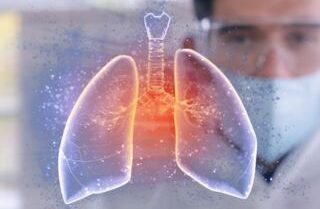Zakariah Gassasse
PhD Student (Inflammation and Immunity) at Imperial College London

Zakariah is a PhD student in Public Health at Imperial College London. It is a 3.5-year HDR UK-funded non-clinical PhD studentship to study health inequalities in people with chronic respiratory diseases.
Previously, Zakariah was a statistics and health economics researcher at Queen Mary University of London. His research focuses on the observational analyses of non-communicable diseases, from assessing the association between urbanisation and diabetes worldwide to understanding the inequalities and interdependencies of asthma outcomes across socioeconomic tertiles in East London. Meanwhile, he has co-led the Advanced Epidemiology module for BSc Global Health and provided teaching and administrative support for the Health Economics module for MSc Global Health.
Outside of academia, Zakariah worked at the ONS. He was involved in the quality assessment of deflators across National Accounts to improve volume-based GDP or Real GDP estimates as per the Double Deflation project.
Project Information
Research Driver Programme: Inflammation and Immunity
Title: Exploring the role of socioeconomic status on Health Inequalities in adults with asthma in England
Summary:
Asthma is a long-term lung condition characterised by coughing, wheezing, tight chest and breathlessness. The UK has one of the highest asthma rates in the world, with inequalities getting worse over the last decade. COVID-19 has raised the importance of respiratory health, such that asthma is now one of the leading conditions in public health policy. Not only is asthma a significant public health issue but also an economic issue, with costs surpassing £1bn. Yet its importance is not reflected in the literature, with very few studies looking into the role of inequalities on asthma in England. Using CPRD data linked with death, hospital data and socioeconomic status, I will assess the relationship between socioeconomic status and the asthma care pathway (asthma diagnosis, management and outcomes). Also, I will evaluate the importance of the domain scores that make up socioeconomic status in explaining the association across the pathway. As a result, policymakers will better understand the extent to which inequalities affect asthma over time and tailor their interventions to address population needs.
What is your motivation for undertaking this project and how will this funding impact your research?
Since my undergraduate, I have been keen to understand the determinants of non-communicable diseases, publishing an ecological study examining the association between urbanisation and type 2 diabetes. COVID-19 shaped my focus on inequalities as the pandemic had varying effects on populations worldwide while bringing respiratory health to the fore. This inspired me to undertake a pre-doctoral NIHR fellowship, where I used electronic health record data to analyse the longitudinal effects of deprivation on asthma outcomes in over 100,000 patients from three East London CCGs using mixed effects and multinomial models. As I realised the complexity of the issue, I became increasingly curious about exploring the best methodological practices that best address one of the most pressing public health issues. This curiosity led me to pursue a PhD, where the funding will enable me to use my experience with electronic health records to tackle some of the key questions in asthma research, particularly around health inequalities.


